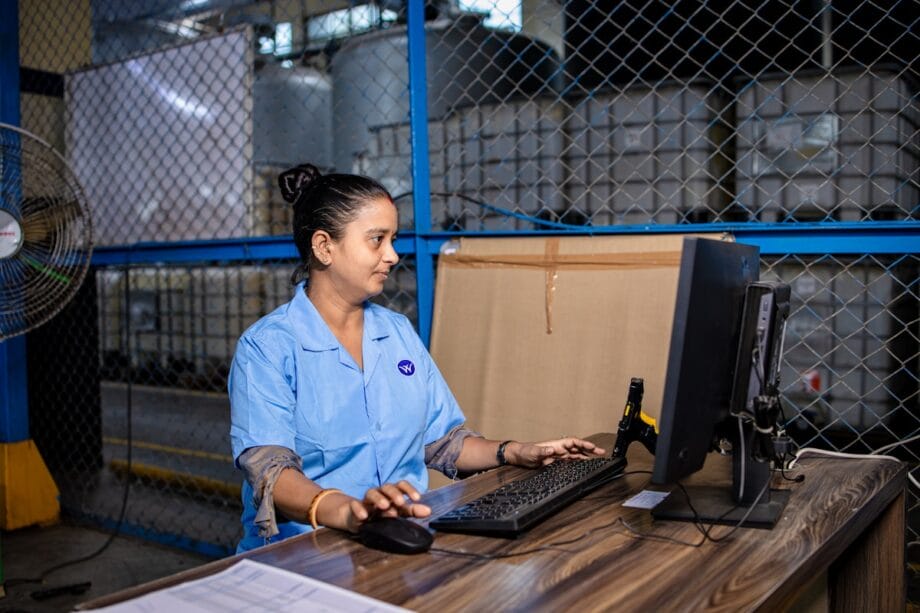European Finance Ministers Accelerate Customs Duties on E-Commerce Imports
BRUSSELS (Reuters) – In a decisive move, European finance ministers have resolved to expedite the implementation of customs duties on low-value parcels, set to take effect next year.
This initiative aims to curtail the influx of inexpensive Chinese e-commerce imports from online platforms such as Shein and Temu.
Concerns Regarding Cheap Imports
The European Union currently boasts a “de minimis” customs duty exemption applicable to e-commerce parcels priced under 150 euros ($174). This exemption facilitates online platforms like Shein, Temu, AliExpress, and Amazon Haul in shipping apparel, accessories, and gadgets directly from Chinese factories to consumers at remarkably low prices.
Last year, the volume of these low-value e-commerce packages entering the bloc surged, reaching 4.6 billion, more than 90% originating from China, as reported by the European Commission.
Alarmingly, it is estimated that approximately 65% of these small parcels are deliberately undervalued in order to evade customs duties.
Furthermore, the bloc has articulated apprehensions regarding potential consumer risks stemming from non-compliant products, environmental degradation attributable to the shipment of short-lived goods, and competitive damage to EU industries, particularly to local retailers, exacerbated by the surging imports.
The recent abolition of a similar “de minimis” policy in the U.S.—which previously allowed duty-free entry for parcels valued under $800—has intensified fears that an influx of cheap Chinese imports may redirect more business to Europe.
EU’s Strategic Initiatives
In response, the European Union is poised to overhaul its customs framework by establishing an EU Customs Authority alongside an EU Customs Data Hub.
This infrastructural upgrade is projected to yield annual savings of up to 2 billion euros for member states while enhancing coordination efforts.
As a customs union, the EU enforces a uniform tariff on imports from non-member countries and imposes no tariffs on intra-EU trade.
However, disparate customs agencies within member nations currently operate 189 distinct customs IT systems, highlighting the necessity for the new data hub. Dirk Gotink, a Dutch lawmaker overseeing the parliamentary reforms, emphasized the importance of this initiative.
“The data is akin to an MRI scan of the European economy and trade flows; it is extremely sensitive, necessitating stringent access regulations,” Gotink articulated during an interview with Reuters.
The anticipated rollout allowing e-commerce companies access to this data hub is not projected until 2028, coinciding with the planned abolition of the current 150 euro de minimis exemption. For many stakeholders, this timeline is deemed excessively protracted.
Short-Term Remedies
In the interim, the EU plans to implement a “simplified temporary customs fee” on low-value e-commerce packages, potentially by November 2026. This single percentage-based duty will be finalized by finance ministers during a meeting scheduled for December 12.
Additionally, the Commission has proposed a handling fee of 2 euros for low-value parcels delivered directly to consumers or a charge of 50 cents for parcels processed via warehouses.
The responsibility for this fee would fall on online retailers or importers, further complicating the cost structure, in addition to the impending temporary customs fee.
The handling fee is also expected to debut in November 2026, or earlier, should an IT infrastructure be established to facilitate its implementation.
Location Bids for the New Customs Authority

A number of countries, including France, the Netherlands, Poland, and Portugal, are vying to accommodate the new EU Customs Authority, with a bid deadline set for November 27.
France has proposed Lille, situated near the Belgian border, while Poland has put forth Warsaw, which currently serves as the headquarters for the European border and coast guard agency Frontex. Porto has been nominated by Portugal as a potential host city.
Source link: Uk.finance.yahoo.com.






